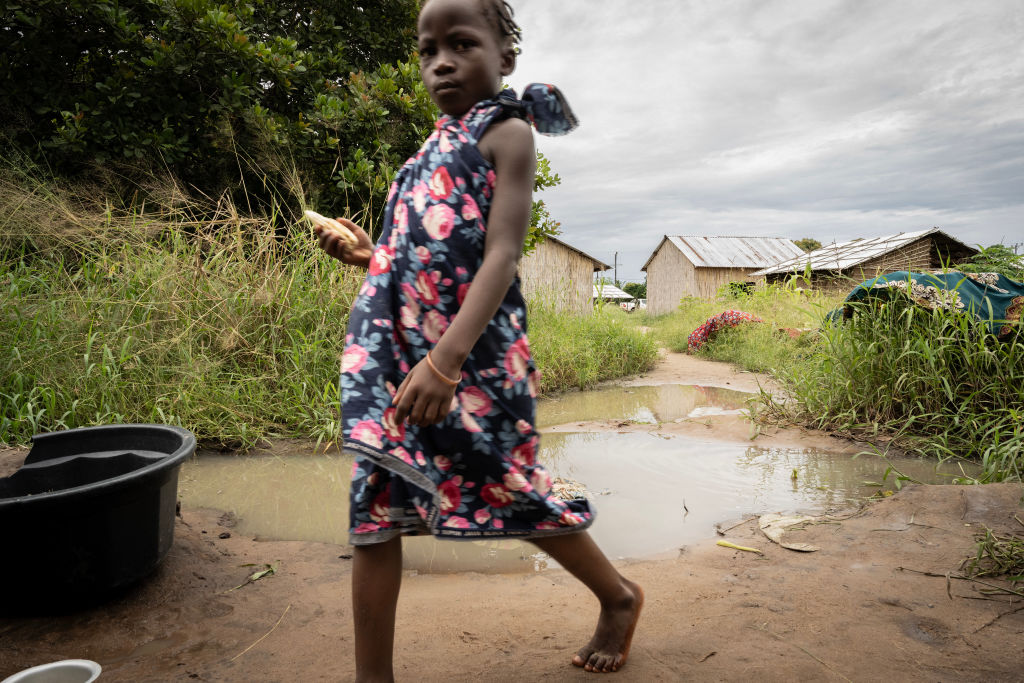Islamic State-Mozambique is one of many terrorist groups in Africa using child abduction as a weapon of war.
The United Nations and several civil society groups in Mozambique say the terrorists, known as ISM, have targeted children in a wave of kidnappings in recent months, which has coincided with an increase in attacks in Cabo Delgado province in the northern part of the country.
“The surge in abductions of children in Cabo Delgado adds to the horrors of Mozambique’s conflict,” Ashwanee Budoo-Scholtz, deputy Africa director at Human Rights Watch (HRW), said in a statement on June 24.
In May and June, HRW interviewed nine people in Mozambique, including residents of Cabo Delgado, journalists, civil society activists and a U.N. official, all of whom expressed concern about the surge of abductions.
“In recent days, 120 or more children have been abducted,” Abudo Gafuro, executive director at Kwendeleya, a national organization that monitors attacks and provides support to victims, told HRW.
Many violent extremist groups on the continent have employed similar tactics, most notably Boko Haram in Nigeria. Often in desperate need of manpower, these groups frequently target children for training, brainwashing and filling their ranks. The children kidnapped by ISM are not typically held for ransom. They reportedly are used as child soldiers, laborers and forced brides as part of a strategy of indoctrination and territorial control.
The wave of abductions began in January when ISM abducted four girls and three boys during an attack on the village of Mumu in Mocímboa da Praia district. The insurgent group released two children during its subsequent retreat, but five remain missing.
In March, ISM kidnapped six children in Chibau to carry goods looted from the village, releasing four the next day. On May 3, the armed group abducted a girl in Ntotwe, Mocímboa da Praia district. On May 11 in the village of Magaia in Muidumbe district, insurgents abducted six girls and two boys while killing three girls aged 17, 14 and 12.
When ISM fighters “enter or attack certain areas, they tend to abduct children,” Augusta Iaquite, coordinator at the Association of Women in Legal Careers in Cabo Delgado, told HRW. “They take them to train them and later turn them into their own fighters.”
While a number of children remain missing, those who have returned home have struggled to reintegrate with their communities.
“The country needs a clear strategy on what to do when a child, especially one that has been rescued, returns,” said Benilde Nhalivilo, executive director at the Civil Society Forum for Children’s Rights, told HRW.
The rights groups urged Mozambican authorities to support the victims with medical and mental health care and launch reintegration mechanisms that provide for their well-being.
“Mozambique’s government needs to take concrete actions to safeguard children and prevent armed groups from using them as tools of conflict,” Budoo-Scholtz said. “There is a need to ensure that there are robust reintegration measures so that the children are not further ostracized when they come back to the community.”
UNICEF, the U.N. Children’s Fund, called for the return of abducted children in Cabo Delgado and committed to provide psychosocial and trauma-informed care while bolstering its child protection monitoring and early warning systems in the province.
“This is a tragic reminder of the extreme dangers faced by children in conflict-affected communities,” UNICEF said in a statement. “Every child has the right to live in safety, free from violence and fear. These children are not just statistics. They are daughters and sons, students, future leaders. Their suffering must end, and perpetrators of such heinous crimes must be held accountable.”


1 Comment
More information please!